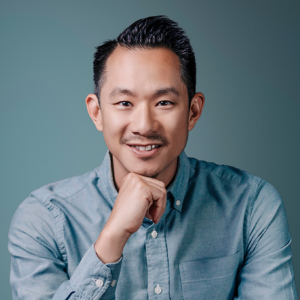The struggle of multi-cultural identities
I have a friend who grew up in a pretty traditional Asian American home. This meant that from the beginning, your gender, responsibilities, and expectations for the future were pretty much set in stone. If you grew up as the firstborn male, then you were expected to carry on the family name and legacy, be responsible for observing all the traditions and societal obligations, and bring honor to your home and parents. How? By going to the best university, graduating with honors, pursuing higher education, and finding a job with great pay. Not only this, but everyone in the extended family expected this of you. If you were born a female, then you were expected to be nurturing and sacrificial, loving and studious, and eventually find a good job and/or get married to a man of status and prestige. Or rather everything the Asian male is expected PLUS the motherly qualities while making it look graceful. Now this all may sound pretty stereotypical for an Asian family but it is the reality for most of us who have grown up in immigrant homes.
As my friend began to grow up in a non-Asian culture environment, he realized that his friends of other ethnicities and cultures didn’t have these kinds of expectations from their parents. There was less emphasis on getting perfect grades, going to study programs after school, or the weekend being packed with extracurricular activities (e.g., Saturday Chinese school). The challenge of growing up in this kind of context at a young age is the confusing duality of two different cultural expectations. One was to please and be acceptable to our culture, tradition, and parents, but the other was to be loved, accepted, and understood by our “western” peers who didn’t understand our background.

As my friend began to grow up in a non-Asian culture environment, he realized that his friends of other ethnicities and cultures didn’t have these kinds of expectations from their parents. There was less emphasis One day my friend came home and asked his parents, “How come Johnny is allowed to get B’s on his report card without getting in trouble but I’m not? How come Johnny gets to go out and play on weekday nights and watch cartoons and I’m not?” These questions were met with, “Do as you’re told, not how you feel.” Then his parents would say something along the lines of “Right now you don’t understand but you’ll thank us in the future” and “We only want what is best for your future.” The parents certainly had good intentions for their children yet they did not understand how to meet their present-day needs.
Looking back, my friend does appreciate the success and comfort that came from the discipline and order his parents’ family and culture brought. Yet, when he was in the process of dating and learning to develop deeper relationships, he realized something was wrong. He could never fully and truly express how he felt on the inside. This was true about simple issues such as “What should we eat?” The inner conflict is often about picking the “right” answer. What is the right answer? It seems to be largely based on the approval of his parents to meet societal expectations. After a lifetime of deferring decisions and preferences, he realized he never felt “safe” to share how he truly felt on the inside due to the fear of being emotionally abused, blackmailed, or invalidated. Being honest about his thoughts and feelings was often dismissed or punished if they did not match the “right” answer.

Now as an adult, he had gone through counseling, coaching, and lots of personal development to overcome this fear of expressing how he truly feels to his parents and other people. Through this process, he realized that the safety he needs to communicate with others ultimately is up to his own courage and conviction to do what’s right for him. It is not always that his voice is the only one that matters. He has learned to honor his voice as being equally important to the opinions of others. He was able to communicate with his parents and strike a balance between not totally throwing away the cultural traditions that were key to his identity, but weed out those aspects that took away from him and his personal self-worth.
I’m not sure how many of you can relate to this story but on some level, all of us deal with this type of insecurity. It robs us of the freedom to express our individuality and the power to pursue desirable destinies. If you or someone you know is struggling with this or similar issues, we highly recommend you talk to a professional to help guide you through the process of finding your personal voice and finding the freedom you deserve today! At Pivot Counseling, our team is dedicated to reclaiming your voice to live a holistic life that is true to your identity.
